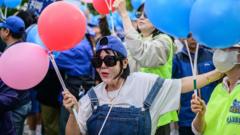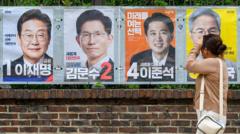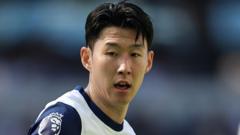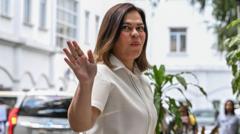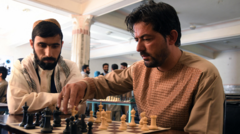In the wake of protests against former President Yoon Suk Yeol, young South Korean women find themselves struggling for political relevance as they prepare to vote. Despite their crucial role in earlier protests highlighting gender discrimination, current candidates seem hesitant to prioritize women's rights, raising concerns about their future in a male-dominated political sphere.
Young South Korean Women Demand Representation as Election Approaches

Young South Korean Women Demand Representation as Election Approaches
As South Korea gears up for presidential elections, women express dissatisfaction with male candidates sidelining gender equality issues.
As South Korea stands on the brink of presidential elections on June 3, the plight of young women continues to dominate discussions, revealing deep-seated frustrations over gender representation in politics. Following their significant involvement in protests that led to the impeachment of former President Yoon Suk Yeol, young South Korean women are voicing their discontent regarding the candidates standing to replace him.
These women played pivotal roles in calling out President Yoon for fostering a climate of contempt towards them, notably during his controversial martial law declaration last December, which sparked widespread discontent and mobilization. Despite their passionate activism, including utilizing K-pop anthems and vibrant protests, many women feel that their voices and concerns are being overlooked in the lead-up to the elections.
The prevailing gender-based discrimination against women in South Korea remains stark, with complications such as unequal pay, underrepresentation in leadership roles, and rampant online harassment. Yet, as economic instability grips the nation, many young men perceive themselves as victims of reverse discrimination, complicating conversations around feminism. The rising political right, epitomized by Yoon's People Power Party, successfully harnessed these sentiments, winning the young male electorate in 2022 by denying the existence of systemic gender inequality.
Lee Jae-myung, the current leading candidate from the left-leaning Democratic Party who narrowly lost in the previous election, acknowledges the proactive role of young women in the anti-Yoon protests. However, he and his party are treading cautiously with their campaign messages, wary of alienating male voters with explicit feminist rhetoric.
The prevailing narrative has left many women questioning whether their issues, central to creating a safer and more equitable society, will ever gain the attention they rightly deserve in the impending elections.






